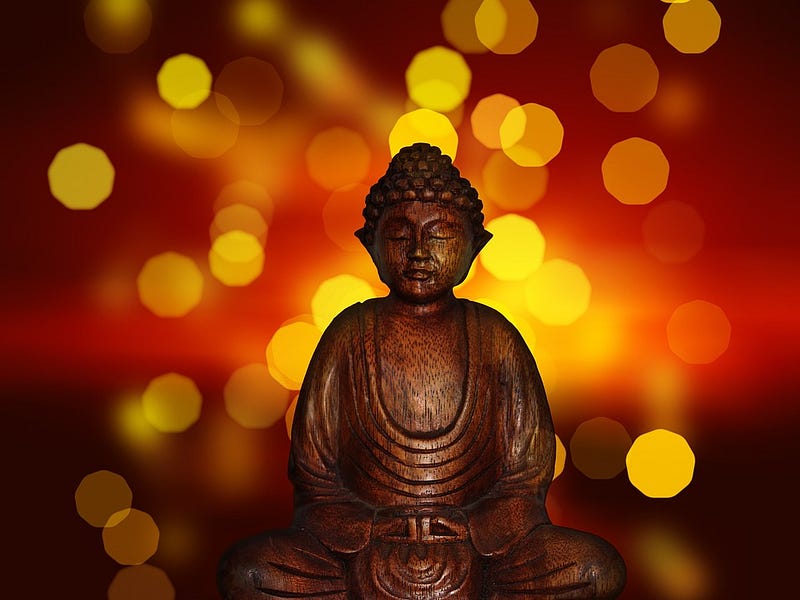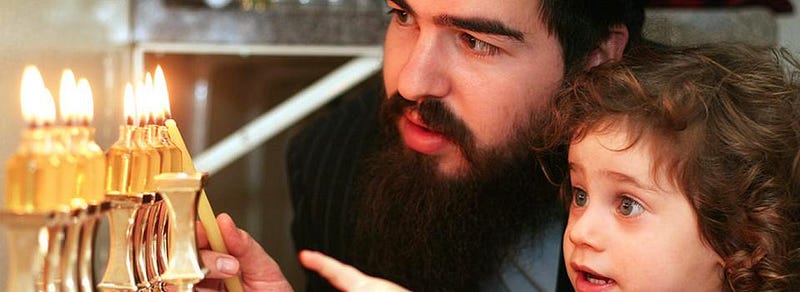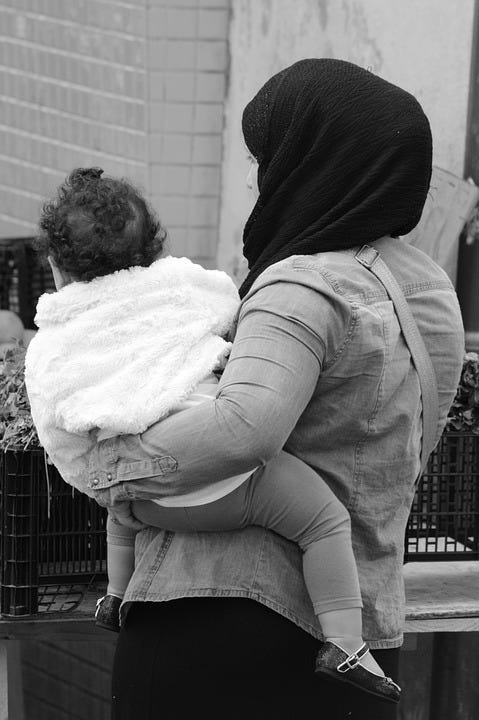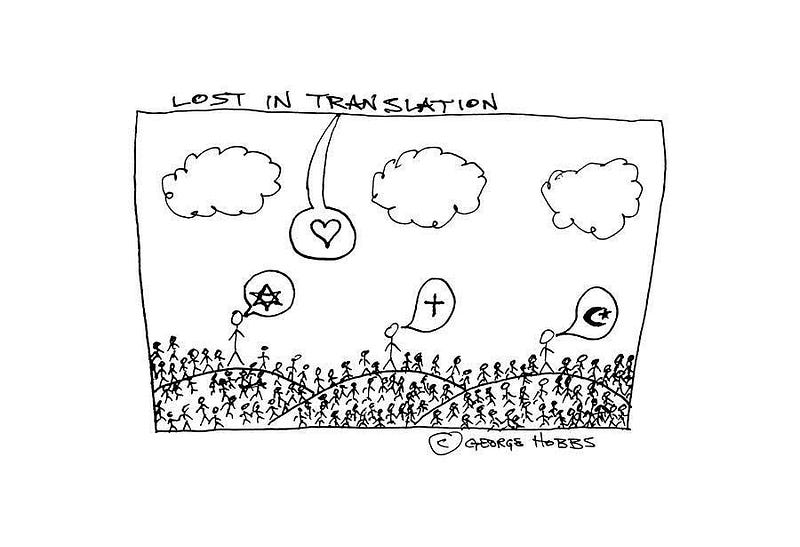As you might have heard, Mormons — like many of our other religious brothers and sisters — are fairly anxious about religious freedom these days. In light of President Obama’s proclamation that January 16th is Religious Freedom day, this post suggests a number of concrete ways that we can all do a little better at honoring religious freedom.
1) Respect people of all faiths
“We ought to be aware of those prejudices which sometimes so strangely present themselves, and are so congenial to human nature, against our friends, neighbors and brethren of the world, who choose to differ from us in opinion and in matters of faith. Our religion is between us and our God. Their religion is between them and their God.” — Joseph Smith

Sometimes the faithful can be the most passionately dismissive of others’ religious beliefs. America has a long history of dominant religions oppressing minority religions. Just ask Mormons in Missouri in 1838 or the survivors of Haun’s Mill.
If we are to defend religious freedom, we must remember that when any religious group is targeted, we all have a responsibility to speak up. — President Obama
2) Respect people of no faith
We acknowledge that the same freedom of conscience must apply to men and women everywhere to follow the religious faith of their choice, or none at all if they so choose. — Dallin H. Oaks

Religious freedom covers all variations of religious belief —from the most believing to the religious “nones.” Defending religious freedom requires that every point on that spectrum is equally defended.
Religious freedom protects the rights of all groups and individuals, including the most vulnerable, whether religious or not. —Mormon Newsroom
3) Stand with minority religions
Unpopular minority religions are especially dependent upon a constitutional guarantee of free exercise of religion. —Dallin H. Oaks
Donald Trump’s threatened Muslim registry and the crisis at Standing Rock in 2016 were an opportunity for members of the Christian majority in America to stand with their fellow people of faith. Many did. Too many of us didn’t, or did so halfheartedly. In 2017, let’s be sure to try a little harder to be a little better at this.

[T]he same principle which would trample upon the rights of the Latter-day Saints would trample upon the rights of the Roman Catholics, or of any other denomination who may be unpopular and too weak to defend themselves. — Joseph Smith
4) Err on the side of compassion
Part of being American means guarding against bigotry and speaking out on behalf of others, no matter their background or belief — whether they are wearing a hijab or a baseball cap, a yarmulke or a cowboy hat. — President Obama
Christians worship Jesus, a dark-skinned Jew who routinely offended the religious leaders of his day by doing exactly the opposite of what they said. If they decided someone was dirty and untouchable, Jesus went out of his way to touch them. If they decided you couldn’t shuck corn on Sunday, Jesus waited until they walked by on a Sunday, and shucked corn right in front of them.
Churches are political even when they refuse to act politically, because silence is a form of complicity and thus an endorsement of the status quo. — Robin R. Meyers
Religion is supposed to help us love each other more, not beat each other over the heads with the weight of our interpretations of scripture.

This becomes easier when we remember that Elder Oaks has taught us just because we religious folk don’t get our way legally doesn’t mean that we’re somehow oppressed:
Religious belief is obviously protected against government action. The practice of that belief must have some limits. — Dallin H. Oaks
5) Use religious freedom to bring people together, not drive people apart
We have a responsibility to be active in the communities where we live … and to work cooperatively with other churches. … It’s important that we eliminate the weakness of one standing alone and substitute for it the strength of people working together. — President Monson
We have a great opportunity in religious diversity. All religions of the world have truth and goodness to share. And all religions call for more love, more compassion, and more service.
[T]hroughout our history, faith communities have helped uphold these values by joining in efforts to help those in need — rallying in the face of tragedy and providing care or shelter in times of disaster. — President Obama
If we prioritize being right over love and service — if we use faith as an excuse to be mean to others — we are doing far worse than hiding our light under a bushel.
 image credit: mormonnewsroom.org
image credit: mormonnewsroom.org
As Christians, our most “deeply held religious belief” is that Jesus Christ died on the cross for sinful people, and that in imitation of that, we are called to love God, to love our neighbors, and to love even our enemies to the point of death. So I think we can handle making pastries for gay people. — Rachel Held Evans
6) Listen

Nobody likes talking with someone who knows they’re 100% right about something. This is especially true when it comes to matters of faith. When our number one goal is to prove we’re right or defend our turn, we’ll miss out on opportunities to learn and grow.
As a Nation, our strength comes from our diversity, and we must be unified in our commitment to protecting the freedoms of conscience and religious belief and the freedom to live our lives according to them. — President Obama
7) Let others worship how, where, and what they may
A church can claim access to higher authority on moral questions, but its opinions on the application of those moral questions to specific legislation will inevitably be challenged by and measured against secular-based legislative or political judgments. — Elder Dallin H. Oaks
It’s easy to forget that some people worship differently than we do, but should still be allowed their religious preference.
Yet while I do this work because of my faith, I also recognize of course that in a pluralistic society there are many different perspectives. It is both unrealistic and wrong to insist that everyone hold my views, my faith. The place we meet, in our differences, is in the founding documents of our democratic republic. — Sister Simone Campbell

8) Disagree without being disagreeable
“Hooray for differences! Without them, there would be no harmony. In principles, great clarity. In practices, great charity.” —Sister Chieko N. Okazaki
Religious freedom means freedom for religion, but also freedom from religion. Freedom from hatred and judgment. Freedom from oppression because of religious beliefs.
[I]n a nation with citizens of many different religious beliefs, the right of some to act upon their religious principles must be qualified by the government’s responsibility to protect the health and safety of all. — Dallin H. Oaks
9) Be bold in defense of both sides of religious freedom
As L. Tom Perry wisely taught “Besides protecting our own rights, we must protect the rights of others, including the most vulnerable and the least popular. We must show mutual respect for others and treat all civilly. No one should be belittled for following his or her moral conscience.”
The religious beliefs of people like Sister Simone Campbell and Rev. William Barber (and many others) drive them to defend LGBT rights just as sincerely and religiously as others’ religious beliefs drive people to restrict them. It’s not religious freedom if it just defends me and my perspective.
In other words, there’s a “religious right” and there’s a “religious left.” There’s all shades of a religious middle. Our nation is healthiest when we allow all sides to come to the table rather than pretending our side is the only legitimate one.
We are at our best as fellow citizens when the push-pull of different viewpoints, freely and thoroughly aired in national debate, leads ultimately to compromise and resolution and we move on as a nation, stronger than before. — Sister Neill F. Marriott
10) Don’t turn religious freedom into a competition
While it might be easy to attempt to compare persecution complexes, religious freedom isn’t about who gets picked on the most. Persecution is all too rampant across the world — both of religious people and by religious people.
When we are so caught up in how oppressed are, we’re not able to actually live the part of our religion that asks us to love other people, to watch their backs in a dangerous world.
Indeed, a quick glance around this broken world makes it painfully obvious that we don’t need more arguments on behalf of God; we need more people who live as if they are in covenant with Unconditional Love, which is our best definition of God. — Robin R. Meyers

Showing 1 reaction
Sign in with
The Constitution’s (1st amendment) as pertaining to religion says, “Congress shall make no law respecting the establishment of religion, or prohibiting the free exercise thereof.” I hate to break it to you but how Mormons, Catholics, Muslims or any other religion or person acts doesn’t hurt religious freedom. Even Christian bakers, photographers and other businesses not participating in something they deem against their religion such as gay marriages doesn’t hurt religious freedom. Workplaces refusing to pay for abortions or contraceptives doesn’t hurt religious freedom. The only thing that hurts or destroys religious freedom is government. You mentioned the Mormons in Missouri and Hauns Mill. But I seem to recall the people that were against the Mormons used the government to do the persecution. It was Gov. Boggs that put the extermination order on the Mormons. Joseph Smith was “arrested” and put in Carthage jail. The massacre at Hauns Mill occurred under the color of law. That is why the constitution points to Congress/Government when it defines religious freedom. It wasn’t Mormons or Catholics or Muslims fining the bakers photographers and caterers and putting them out of business. It wasn’t any religion trying to force the The Little Sisters Of The Poor to pay for contraception. It was the government destroying the Free Exercise Clause of the Constitution. It was Pres. Obama and liberal progressives that believe they have such a moral high ground that the use of force is justified. Just like Gov. Boggs or the law that arrested Joseph Smith. It is the government that destroys religious freedom.
When religions and people act contrary to what you believe, you have the freedom to not participate. If you think that an employer should pay for contraception or even abortion then don’t work for a religious organization or business that doesn’t believe in abortion or contraception. If the baker doesn’t want to bake a cake for your wedding then get a baker that does. When the government gets involved there is no recourse. Only the government can throw someone in jail, fine you out of existence, take your family or family members away. In a free country with hundreds of millions of people and many religions, believers and nonbelievers not everyone is going to agree on things. But when you ask the government to force everyone to comply with your beliefs it becomes burdensome and you become what you fear the most. A close-minded individual forcing his will on all who have the audacity to have a different opinion than you.
Another point that you brought up in your article is to support minority religions. This sounds good on the surface but it should go both ways. Too often in our society minority religions/non believers take offence to whatever the majority religions does and uses the government to shut down the majority religion in the area. The religious left as you put it thinks that the only way that a majority religion can support a minority religion is to stop practicing what they believe. That is why you have atheists and other minority religions suing everyone and trying to stop majority religions from practicing their beliefs. It brings to mind the lawsuit where a Muslim student sues a private Christian University to have them remove the crucifixes from classrooms at the school. To the religious left there is no free exercise clause if you are a majority religion. If everyone followed the advice in your seventh and ninth point the minority religions/non believers would be satisfied to let others worship and not take offence to every little thing that is done. This is how Obama can sleep at night forcing religions, doctors, businesses and people to do things against their beliefs.
Also defense of a minority religion should not come at the expense of your principles. If you are for gay rights and are attacking Mormons and Catholics why would you ignore the same perceived wrongdoing in a minority religion. It would be easier to take a lecture from liberal progressives if they were consistent. It becomes obvious that the objective is to destroy one religion using another, not religious freedom when there is no consistency. Maybe instead of lawsuits, fines, jailing people, and impugning people’s motives that disagree with yours, you live and let live. It would be nice if everyone followed the advice that is in your seventh and ninth point but one side doesn’t. They use the government and law suit intimidation for every little perceived violation of how they believe everyone should act. They constantly pit one religion against another.
In summary if you believe in freedom of religion and the constitution follow your seventh and ninth points. Maybe they should have been first and second. Try to convince people that your ideas are correct. Don’t always resort to government to do your bidding.